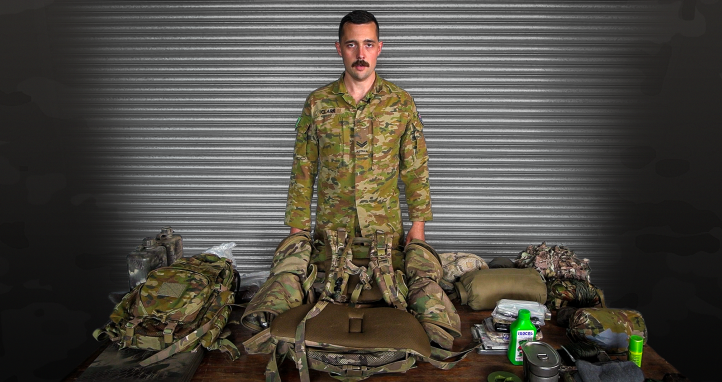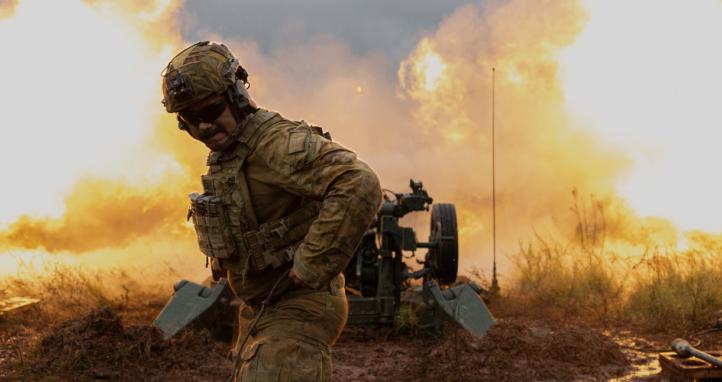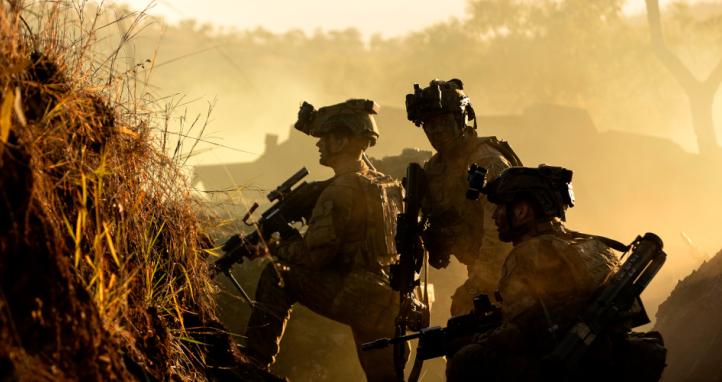Part 1:
1. By-the-numbers: 17 ideas
2. Leadership: 15 ideas
Part 2:
3. Resilience: 17 ideas
4. War & Strategy: 3 ideas
Very few are my own ideas. Mostly, I have read or heard ideas and copied them to the Collins Kingsgrove 341, Week to View.
By-the-numbers:
1. Epictetus, Three Disciplines:[1] There are three areas of stoic study, in which a person who is going to be wise and good must be trained:
- Controls their desires and passions
- Behaves appropriately, not carelessly
- Remains free from deception and hasty judgement[2]
2. Peter Drucker: Only three things happen naturally in organisations: friction, confusion, and underperformance. Everything else requires leadership.[3]
3. Jon Kabat Zinn: mindfulness:
- Bring your experience, not your bias
- Once is forever
- Wherever you go, there you are[4]
4. Road House (1989), Patrick Swayze, three simple rules:
- Never underestimate your opponent; expect the unexpected
- Take it outside
- Be nice[5]
5. US College Football: what makes a ‘game of the century’?
- Number 1 team plays the Number 2 team
- Includes great plays, especially great individual plays
- Involves an unexpected result or a dramatic finish[6]
6 John Wick (2014), Keanu Reeves: Three characteristics:
(1) Focus
(2) Commitment
(3) Sheer will[7]
7. Four simple agreements, Don Miguel Ruiz, that have the power to eliminate needless suffering from your life:
- Be impeccable with your word
- Don’t take anything personally
- Don’t make assumptions
- Always do your best[8]
8. Plato's Republic:[9] lists four cardinal or principal virtues:
- Prudence (or practical wisdom)
- Justice
- Self-control (or temperance)
- Fortitude (or courage).[10]
9. Four Hs – Kevin Stefanski, Coach, Cleveland Browns National Football League: People in teams sharing personal stories, whether tales of hardship or revelations of those who have impacted their lives:
- History
- Heartbreak
- Heroes
- Hopes[11]
10. Four Virtues: The Stoics divide virtue into four main types:[12]
- Wisdom includes:
(1) Good sense
(2) Good calculation
(3) Quick-wittedness
(4) Discretion
(5) Resourcefulness
- Justice includes:
(1) Piety
(2) Honesty
(3) Equity
(4) Fair dealing
- Courage includes:
(1) Endurance
(2) Confidence
(3) High-mindedness
(4) Cheerfulness
(5) Industriousness
- Moderation includes:
(1) Good discipline
(2) Seemliness
(3) Modesty
(4) Self-control
11. Psychiatrist Sue Varma:[13] Four Ms of mental health:
- Mindfulness…deliberately aware of your body, mind, and feelings in the present moment, to create a feeling of calm.
- Mastery…in what skill do you excel?
- Movement…exercise.
- Meaningful engagement…with family, friends, teams and communities.[14]
12. Major General J. F. C. Fuller:[15] Five prerequisites of victory:
- Security
- Surprise
- Mobility
- Concentration
- Cooperation
These five prerequisites, integrated according to the principle of simplicity, result in economy of force and ‘the more force is economised, the more can be held in reserve and in consequence the higher will be the staying power of the attack'.[16]
13. Five questions in a crisis, Robert Kaplan & Anette Mikes:
- What assumptions can be challenged?
- What are our options / courses of action?
- How much time is available?
- What assets are needed?
- Who else needs to know?[17]
14. COVID-19 – Top-10 tips to keep you safe: Severe Acute Respiratory Syndrome Coronavirus 2 (SARS-CoV-2), of the genus Betacoronavirus, is the causative agent of Coronavirus Disease 2019 (COVID-19):
- Wash your hands
- Sneeze into your elbow
- Do not touch your face
- Practice social distancing - 2 metres away from others
- Stay home if you are sick
- Avoid touching things
- Stay informed about restrictions
- Do not hoard medicines
- Do not panic-buy food
- Avoid large gatherings[18]
15. 2020:
- 20 seconds hand washing
- 2 metre distance
- 0 excuses
16. Eleanor Roosevelt: From You Learn by Living: Eleven Keys for a More Fulfilling Life:
- Learning to learn
- Fear—the great enemy
- The uses of time
- The difficult art of maturity
- Readjustment is endless
- Learning to be useful
- The right to be an individual
- How to get the best out of people
- Facing responsibility
- How everyone can take part in politics
- Learning to be a public servant[19]
17. A Hundred Hints for Company Officers: Written, published and employed by the 4th Infantry Brigade, 1st Australian Imperial Force, in November 1914, just prior to the brigade’s departure for service in the First World War:
Hint #77: Soldierly comradeship is marked by self-denial, mutual help, mutual forbearance, loyalty, unselfishness and consideration. Such qualities do not evolve spontaneously (especially among people thrown together for the first time) but must be sedulously* fostered under all circumstances. Good comradeship means effective co-operation in time of stress.[20]
*Sedulously: constant or persistent in use or attention; assiduous; diligent
Leadership:
18. Leadership, General Robert Abrams, US Army: 99 per cent of people are trying their best, however if exasperated by the people you lead:
- Take a knee, face out, drink some water.
- If that does not work, breathe through your nose, close your eyes and count to 10…or 100.
19. Marcus Aurelius: the impediment to action advances action, what stands in the way becomes the way.[21]
20. Marcus Aurelius: Be tolerant with others and strict with yourself.[22] If a person is mistaken, instruct them kindly and show them their error. But if you are not able, blame yourself or blame no one.[23]
21. Clemson University, South Carolina: ‘Best is the Standard’.[24] At Clemson ‘Best is the Standard’ applies on the College football field (Clemson Tigers), off the field, in the classroom and in life. Best is the Standard is defined as:
- Work ethic: you bloom where you are planted
- Unselfishness
- Humility
- Respect
- Love
- Care
- Challenge
- Motivate
- Discipline
- Accountability
- Leadership
- Character
22. Max DePree , What Is Leadership? The first responsibility of a leader is to define reality. The last is to say thank you. In between the two, the leader must become a servant and a debtor. That sums up the progress of an artful leader.[25]
23. Rahm Emanuel, Mayor of Chicago, 2011 to 2019, on why mayors, local government and community leaders matter:
- Local is: immediate; intimate; and, impactful
- National can be: indifferent; distant; and, dysfunctional[26]
24. Epictetus:
- The educated only are free. Freedom is the power of living as we choose. No one who is in a state of fear or sorrow or anxiety is free.[27]
- Oppose unhealthy, negative or reckless impulses with contrary habits of wisdom, justice, courage and moderation.[28]
25. Indira Gandhi: In 1959 Indira Gandhi became President of the Indian National Congress political party. The Times of India newspaper published an article with a quotation in which Gandhi recounted the instruction she received from her grandfather, Pandit Motilal Nehru, who told her:
There are two kinds of people, those who do the work, and those who take the credit. Belong to the first category…there is much less competition.[29]
26. Ernest Hemingway: Across the River and into the Trees, 1967…When people talk listen completely. Don't be thinking what you're going to say. Most people never listen.[30]
27. Leadership lessons from the 82nd Airborne Division, Afghanistan, 2011-2012:
- Move toward the friction. Exercise disciplined initiative through developing a bias for action. Disciplined initiative is action in the absence of orders, when existing orders no longer fit the situation, or when unforeseen opportunities or threats arise. Leaders rely on their leaders and teams to act. Disciplined initiative by leaders and teams is the starting point for seizing the tactical advantage, exploiting an opportunity and disrupting an adversary.[31]
- Leadership: A person may do an immense deal of good, if they do not care who gets the credit.[32]
28. Vince Lombardi:
- Leadership rests not only upon ability, not only upon capacity – having the capacity to lead is not enough. The leader must be willing to use it. Their leadership is then based on truth and character. There must be truth in the purpose and will-power in the character.[33]
- Football and America: I’ve been in football all my life…and I don’t know whether I’m particularly qualified to be a part of anything else, except I consider it a great game, a game of many assets, by the way, and I think a symbol of what America’s best attributes are: courage and stamina and a coordinated efficiency or teamwork.[34]
29. The Magnificent Seven (1960):
Chris Larabee Adams (Yul Brynner): ‘You forget one thing. We took a contract.’
Vin Tanner (Steve McQueen): ‘It's sure not the kind any court would enforce.’
Chris Larabee Adams (Yul Brynner): ‘That's just the kind you've got to keep.’[35]
30. Gabrielle Reece: Former professional volleyball player and Nike’s first female spokesperson, on the power of going first:[36]
I always say that I'll go first...
That means if I'm checking out at the store, I'll say hello first.
If I'm coming across somebody and make eye contact, I'll smile first.
[I wish] people would experiment with that in their life a little bit.
Be first, because – not all times, but most times – it comes in your favour.[37]
31. Mitt Romney: how do we get things done from here?[38]
32. Field Marshal The Viscount William Slim, 14 October 1952: Leadership is the most personal thing in the world, for the simple reason that leadership is just plain you. [As a leader] you have got to have certain qualities. Those qualities I always consider to be:
- First of all courage, then
- Will-power, then
- Initiative, and,
- Fourthly knowledge.[39]




